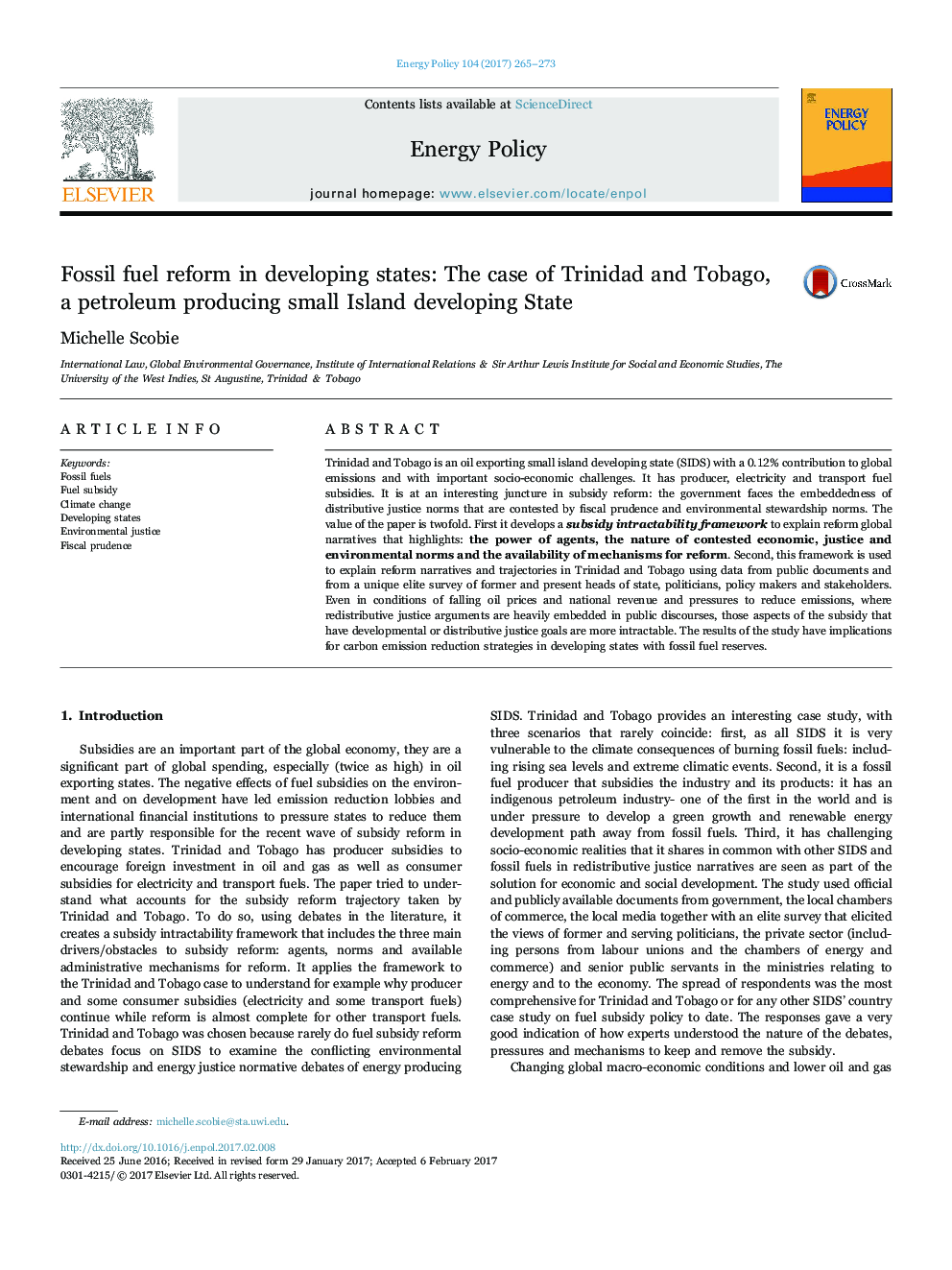| Article ID | Journal | Published Year | Pages | File Type |
|---|---|---|---|---|
| 5106114 | Energy Policy | 2017 | 9 Pages |
Abstract
Trinidad and Tobago is an oil exporting small island developing state (SIDS) with a 0.12% contribution to global emissions and with important socio-economic challenges. It has producer, electricity and transport fuel subsidies. It is at an interesting juncture in subsidy reform: the government faces the embeddedness of distributive justice norms that are contested by fiscal prudence and environmental stewardship norms. The value of the paper is twofold. First it develops a subsidy intractability framework to explain reform global narratives that highlights: the power of agents, the nature of contested economic, justice and environmental norms and the availability of mechanisms for reform. Second, this framework is used to explain reform narratives and trajectories in Trinidad and Tobago using data from public documents and from a unique elite survey of former and present heads of state, politicians, policy makers and stakeholders. Even in conditions of falling oil prices and national revenue and pressures to reduce emissions, where redistributive justice arguments are heavily embedded in public discourses, those aspects of the subsidy that have developmental or distributive justice goals are more intractable. The results of the study have implications for carbon emission reduction strategies in developing states with fossil fuel reserves.
Related Topics
Physical Sciences and Engineering
Energy
Energy Engineering and Power Technology
Authors
Michelle Scobie,
